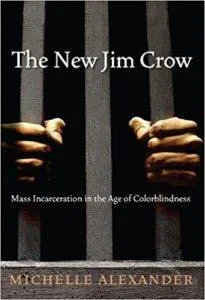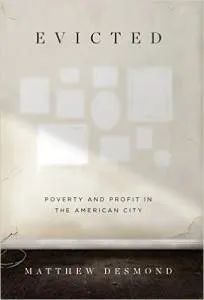
4 Nonfiction Books that Might Just Save The World (or At Least America)
This content contains affiliate links. When you buy through these links, we may earn an affiliate commission.
Have you ever read a book and just thought “everyone needs to read this?” I’m typically a fiction reader and often find it hard to get into nonfiction books. Lately, however, I’ve become obsessed with reading about issues inherent in the American political system. Thankfully, there are tons of incredible writers out there who aren’t content to just sit back and do nothing. They are conducting research to get to the bottom of some of our issues and present real solutions. Here are my top four books that you (and everyone else) needs to read right now.

The New Jim Crow presents a very compelling case for the way in which racism has been systematically incorporated into the United States government. It traces a line from slavery to the Jim Crow Laws right up through the modern prison industrial complex. It shows how, into the present day, we have found a way to oppress minorities through completely legal means.
This book blew my mind wide open. I was aware that our criminal justice system had issues, but I didn’t quite realize the extent of it. What really amazed me was just how calculated the inequality inherent in the system was. This book will call into question everything you thought you knew about criminality in this country. It really forced me to take a second look at the language our politicians use and the way that racism has been embedded in our culture.
Evicted paints a stark picture of poverty in America. Matthew Desmond is a sociologist who immersed himself in two communities in Milwaukee, Wisconsin: a predominantly white trailer park and a black south side neighborhood. He follows a few families through the cycle of eviction and attempting to find housing for themselves and their families. They are working to get back on their feet but consistently struggling to overcome their eviction records. The book is utterly heartbreaking because the system seems completely stacked against these people.
Desmond details the challenges that the landlords face as well, to show how both sides fare poorly in the current system. He shows that the problem can’t be blamed on any one person or any single system or law, but is made up of a tapestry of issues that have been compounded over time. In addition to the evidence he presents, he offers real solutions to the problem. By explaining why previous efforts to address it have failed, he makes a compelling argument for policy changes that could actually create a real difference in the lives of Americans all across this country.




 The New Jim Crow
The New Jim Crow Evicted: Poverty and the American City
Evicted: Poverty and the American City








